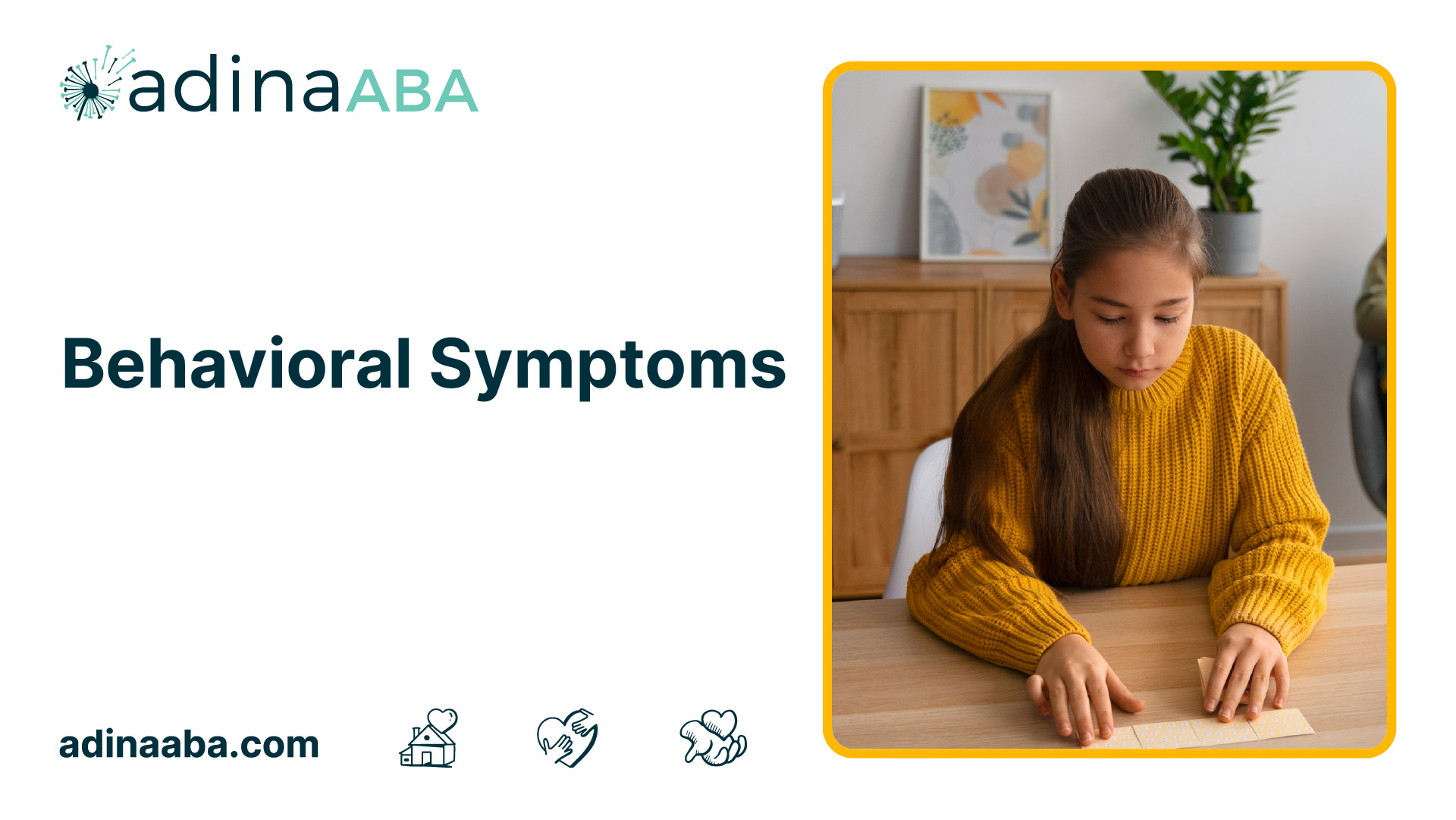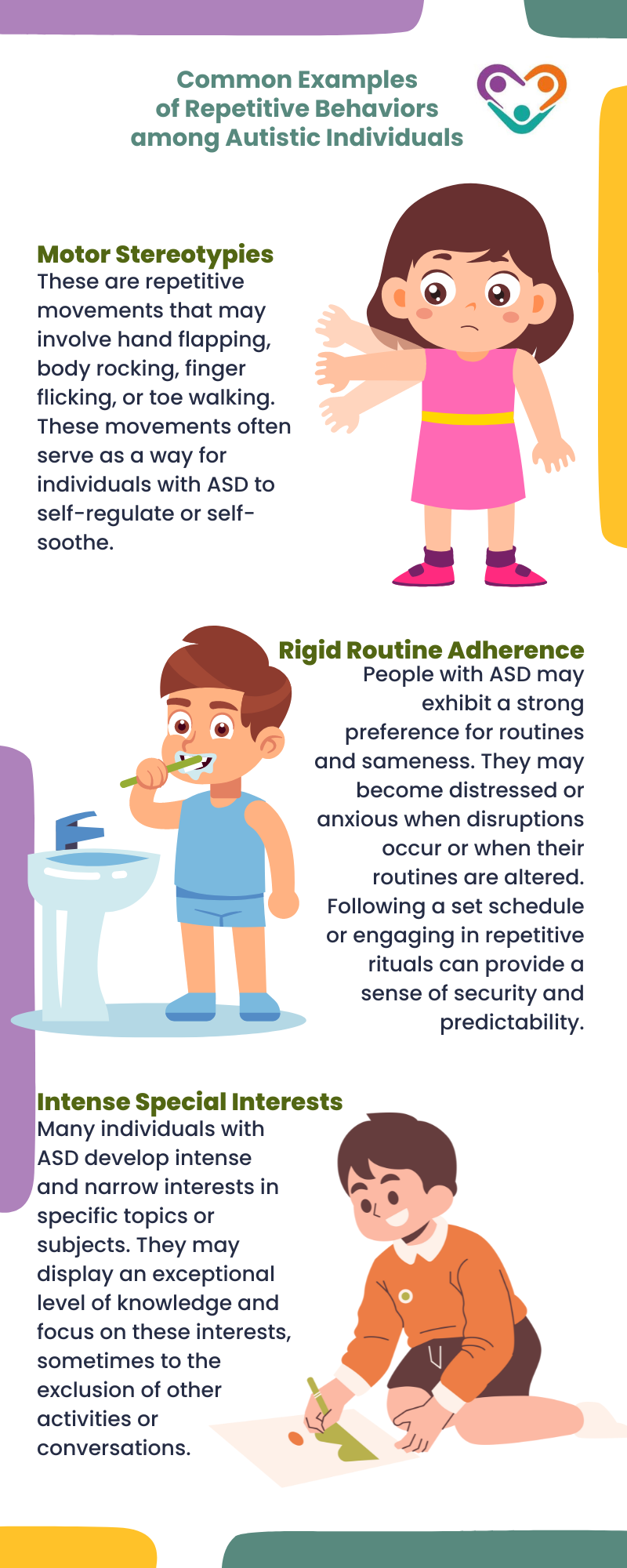Secret Indicators and Signs And Symptoms to Identify in People With Behavior Autism
When you experience somebody with behavioral autism, recognizing key indications and signs is crucial. You could see challenges in social communications and interaction, as well as a solid demand for regimens. Furthermore, sensory sensitivities can lead to overwhelming experiences. Comprehending these qualities can improve your support and treatments, yet there's even more to discover about exactly how these actions materialize in everyday scenarios. Allow's explore what these indicators truly appear like.
Difficulties in Social Communications
When you interact with someone on the autism spectrum, you could discover they battle with social signs and communication. These obstacles can make social interactions really feel frustrating for them. You might see them preventing eye contact or standing also close or as well far throughout discussions, which can develop misunderstandings. They might not notice body language or facial expressions, making it harder for them to gauge just how others are feeling.
Furthermore, you may locate that they choose routines and acquainted setups, which can restrict their determination to involve in new social circumstances. They may talk about their passions in fantastic detail without seeing if you're interested when they do engage. This can result in prejudiced discussions that leave you feeling separated. Recognizing these obstacles can assist you come close to communications with empathy and patience, promoting a more comfy environment for both of you.
Trouble With Verbal and Non-Verbal Interaction

Acknowledging these indicators is important, as it helps you much better support and involve with individuals on the autism spectrum. By understanding their communication difficulties, you can cultivate more purposeful connections and give a more helpful environment.
Repetitive Behaviors and Regimens
Communication obstacles usually come with various other indications of autism, such as repetitive actions and a solid choice for routines. You may see that people with autism often participate in specific, repeated actions, like hand-flapping, shaking, or repeating phrases. These habits can give comfort and a sense of control in a frequently overwhelming world.
Regimens are just as crucial; several people flourish when they follow an organized routine. You might locate that changes to these routines can result in considerable distress. For instance, if they have a daily routine of consuming morning meal at a certain time or complying with a certain path to school, any kind of disturbance can trigger stress and anxiety.
Identifying these patterns assists you comprehend their behavior and give support. By accommodating their demand for regular and allowing repetitive activities, you can develop a more comfy setting that alleviates their challenges.
Sensory Sensitivities

Typical Sensory Triggers
Sensory level of sensitivities can significantly influence day-to-day live for people with autism, as particular stimuli frequently activate frustrating reactions. Typical sensory triggers consist of loud noises, brilliant lights, and strong smells. You could observe that unexpected sounds, like alarms or alarms, create anxiety or distress. Likewise, fluorescent lights in stores can feel unpleasant and severe. Structures can additionally play a substantial duty; harsh fabrics or certain food structures may be unbearable for you. In addition, crowded places can overwhelm your senses, making it hard to focus or unwind. Recognizing these triggers can aid you handle your setting better. By being mindful of what affects you, you can take see this website actions to minimize pain and boost your day-to-day experiences.
Behavioral Reactions Discussed
Understanding your behavior responses to sensory sensitivities is important, as they usually expose how you interact with the world. You might additionally find on your own looking for specific sensory experiences, like deep pressure or peaceful atmospheres, to aid ground yourself. Acknowledging these patterns assists you recognize your needs far better and can guide exactly how you interact them to others.
Coping Approaches Overview
Acknowledging your sensory sensitivities is simply the initial action; currently it's time to explore coping strategies that can aid you handle those experiences effectively. Beginning by developing a sensory toolkit tailored to your needs. Establishing a structured routine can additionally give predictability, lowering stress and anxiety around sensory overload.
Restricted Interests and Emphasis
While numerous individuals develop a wide variety of rate of interests, those with autism typically demonstrate restricted passions and an intense concentrate on certain topics. You may observe that someone with autism can invest hours delving right into their preferred subject, whether it's a particular kind of train, a particular movie, or a clinical concept. This extreme focus isn't simply a pastime; it can come to be a central component of their identity and social communications.
You may locate that conversations revolve around these rate of interests, and they might have a hard time to involve in broader topics. By comprehending and recognizing these limited anonymous rate of interests, you can foster an encouraging environment where they feel valued and comprehended, enabling for even more purposeful connections and interactions.
Emotional Regulation Troubles
People with autism often face challenges in psychological guideline, which can be affected by their intense concentrate on particular interests. You could observe that when an individual is deeply taken part in a recommended task, they can experience strong feelings, whether enjoyment or irritation. This strength often makes it tough for them to move gears or handle their sensations when things do not go as planned.

Irregularity in Developmental Turning Points
When it pertains to developmental milestones, you'll see that individuals with autism often reveal a variety of variability. Some might hit turning points on schedule, while others might delay behind or development at a different speed. For circumstances, read here you may see a child stand out in language skills but deal with social communications. This incongruity can be confusing, as conventional benchmarks don't constantly use.
It's necessary to recognize that each person's trip is distinct. Observing these patterns can assist you understand their strengths and needs better.
Frequently Asked Questions
How Is Autism Identified in Kid and Adults?
To identify autism in adults and children, specialists assess behavior, interaction skills, and social interactions. If a specific fulfills the requirements for autism range problem., they commonly make use of standard tests, interviews, and observations to determine.
Exist Different Sorts Of Autism Spectrum Disorders?
Yes, there are different sorts of autism range conditions, including Asperger's disorder and prevalent developing disorder-not otherwise specified. Each kind differs in extent and qualities, so understanding these differences can aid you much better assistance people with autism.
What Treatments Work for Individuals With Autism?
When thinking about reliable therapies for people with autism, you'll discover options like Applied Behavior Evaluation, speech treatment, and work treatment. Each method can help enhance communication, social skills, and everyday functioning tailored to specific requirements.
Can People With Autism Lead Independent Lives?
Yes, individuals with autism can lead independent lives. With the best support, skills training, and resources, you can assist them create self-sufficiency, handle day-to-day jobs, and flourish in various environments, promoting their independence.
How Can Family Members Support Loved Ones With Autism?
You can sustain your enjoyed ones with autism by producing a structured environment, encouraging their passions, practicing patience, cultivating interaction, and advertising social abilities. Celebrate their success, no matter how small, and construct a supportive area.
Although several people on the autism range can use and comprehend language, they usually encounter substantial difficulties with both non-verbal and verbal interaction. Acknowledging these indications is important, as it helps you better assistance and engage with people on the autism range. You may notice that people with autism usually engage in specific, repeated activities, like hand-flapping, shaking, or repeating phrases.Sensory level of sensitivities can considerably influence everyday life for individuals with autism, as particular stimuli frequently set off overwhelming responses.When it comes to developmental milestones, you'll see that individuals with autism frequently show a vast variety of irregularity.
Comments on “Everyday routines an Aba Therapist Near Me may use to encourage communication”